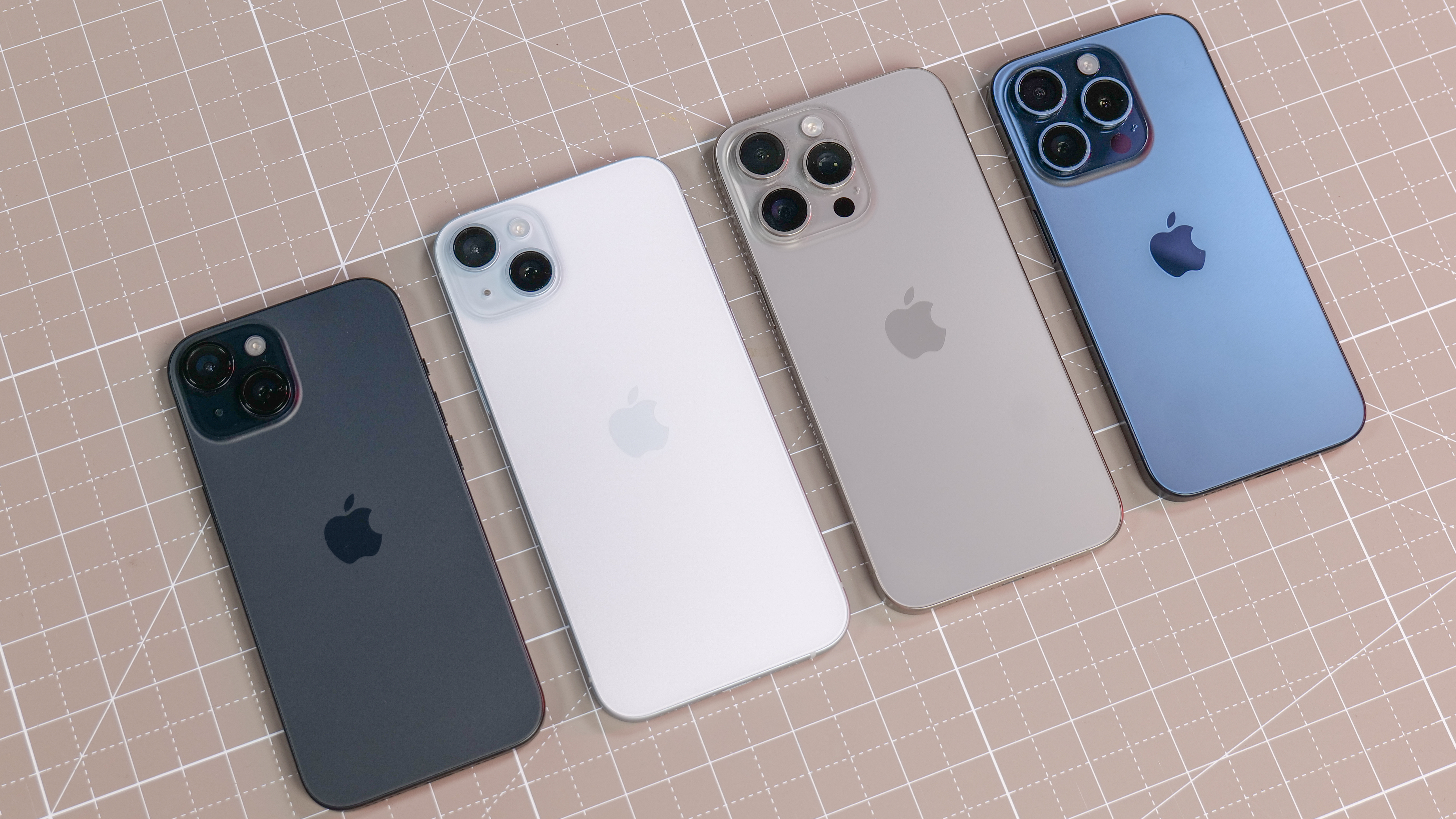iPhone 15 scam: Watch out for this suspicious phone call
A big advance on the "free iPhone" scam

Here at Tom’s Guide our expert editors are committed to bringing you the best news, reviews and guides to help you stay informed and ahead of the curve!
You are now subscribed
Your newsletter sign-up was successful
Want to add more newsletters?

Daily (Mon-Sun)
Tom's Guide Daily
Sign up to get the latest updates on all of your favorite content! From cutting-edge tech news and the hottest streaming buzz to unbeatable deals on the best products and in-depth reviews, we’ve got you covered.

Weekly on Thursday
Tom's AI Guide
Be AI savvy with your weekly newsletter summing up all the biggest AI news you need to know. Plus, analysis from our AI editor and tips on how to use the latest AI tools!

Weekly on Friday
Tom's iGuide
Unlock the vast world of Apple news straight to your inbox. With coverage on everything from exciting product launches to essential software updates, this is your go-to source for the latest updates on all the best Apple content.

Weekly on Monday
Tom's Streaming Guide
Our weekly newsletter is expertly crafted to immerse you in the world of streaming. Stay updated on the latest releases and our top recommendations across your favorite streaming platforms.
Join the club
Get full access to premium articles, exclusive features and a growing list of member rewards.
Some cons are inevitably more sophisticated than others, and we’ve come a long way from the “you’ve won a free iPhone” scam. In fact, the lengths that some scammers will go to steal your iPhone 15 are really quite remarkable, if a new account reported on Mashable proves to be widespread.
The scam in question was actually attempted on the site’s own tech reporter, Cecily Mauran, who was targeted by a number of calls from an unknown number shortly after ordering an iPhone 15 via Verizon.
The calls, she says, involved a scammer claiming to be a Verizon representative. The scammer claimed that the company had “received communication from Apple” that her new phone was a defective device plagued by overheating issues.
"They said they needed to come and pick up my phone right away, because it was 'dangerous'," she explains.
This is devious for a few reasons. Most obviously because it relates to a product that Mauran had actually just ordered, giving it some legitimacy, but also because the iPhone 15 Pro did initially suffer from overheating problems. But these were never dangerous, and the issue was fixed via a software update, app fixes and a little time.
Nonetheless, the caller was persistent and arranged for FedEx to pick up the "defective" iPhone. Fortunately, Mauran was quick thinking enough to call Verizon herself to verify the call — at which point the whole scam fell to pieces.
“There is no issue with your iPhone 15 that would justify any outreach from Verizon,” a spokesperson told Mashable. “Our guidance is if someone calls you saying they’re Verizon and you’re skeptical or just not sure, hang up and call [Verizon].”
Get instant access to breaking news, the hottest reviews, great deals and helpful tips.
The scam was still in motion, however, and a FedEx truck did indeed arrive to pick up the phone. After Mauran explained the situation, the driver revealed that the handset would have been taken to a physical address in Miami, mysteriously with a Kentucky phone number. The recipient was “RETUNS PROCESING CENTER” [sic.].
Always verify
It’s not clear how widespread this scam is, but the lesson is to always be careful, even when the caller seems to know a lot about you.
If you’re called out of the blue, phone the company that the call is purporting to be from to double-check. The worst outcome: they confirm it’s legitimate, and you feel a bit silly for your paranoia — but that’s a lot better than being out of pocket.
What remains unclear is how the scammer managed to target Mauran just as she’d ordered an iPhone 15. This clearly wasn’t a scattergun approach as the scammer knew she was a Verizon customer and had an out-of-date email address she had on file, and Mashable speculates that the vishing attempt could have been made possible thanks to an old data breach.
In this scenario, the iPhone 15 part could well just be pure guesswork. It’s a popular smartphone, after all, and scammers are bound to find some Verizon customers ordering the new handset in the weeks after its release.
A useful adage for spotting scams is that “if it sounds too good to be true, it probably is”. This failed attempt at a scam is a helpful reminder that potentially bad news should also be met with an equally critical eye.
Freelance contributor Alan has been writing about tech for over a decade, covering phones, drones and everything in between. Previously Deputy Editor of tech site Alphr, his words are found all over the web and in the occasional magazine too. When not weighing up the pros and cons of the latest smartwatch, you'll probably find him tackling his ever-growing games backlog. He also handles all the Wordle coverage on Tom's Guide and has been playing the addictive NYT game for the last several years in an effort to keep his streak forever intact.
 Club Benefits
Club Benefits











